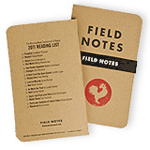by Aimee Bender
Doubleday
Buy at Powell’s »March 24, 2011
Eric Puchner
Aimee Bender
Judged by
When I was a kid—12, 15, 17—I was mortified of my family. I was convinced that no one else in the world, and definitely not the kids in my chemistry class, had parents as heart-poundingly embarrassing as I did and sisters who pestered as much as mine did. Our house was full of knitting supplies, musical instruments and, worst of all, Cabbage Patch Kid bed sheets. Heart-stopping, especially since I knew that my friends’ parents were generous, their sisters were clever, and their houses were full of flowers, video games, and sensible, solid-colored bed sheets. Of course. I was sure of this.
And then I wised up. As I began to get to know other families more intimately (as the daughter’s new roommate, son’s new girlfriend, kids’ new full-time babysitter), it became clear to me: Everyone has cartoon bed sheets in their past, somewhere. My family isn’t anything special. (At least, not for those reasons.)
And this brings me to today’s judgment, between two books, both about families, both set in California. The plots of both books revolve around family secrets, both the secrets a family keeps from the world and the secrets family members keep from one another.
 Buy anything from Field Notes from now until the end of the ToB and receive a special “reading list” memo book free, while they last. Use coupon code ROOSTER.
Buy anything from Field Notes from now until the end of the ToB and receive a special “reading list” memo book free, while they last. Use coupon code ROOSTER.The story of the Ziller family in Eric Puchner’s Model Home revolves around secrets of finance and romance. It’s entertaining, like Laurel and Hardy, and the plot twists just keep getting bigger, as one secret builds into another with ever-larger repercussions. The characters are admirably lovable, even when they make mistake after mistake, and I got the impression that it would be fun to hang out with the Zillers—always an admirable quality in a book, in my mind.
But in the end, the tension was built around the same types of secrets every family has: parents dealing with mounting debt and the challenges of finding inspiration and success at their jobs, teenagers wallowing through relationship problems, and a kid brother who insists upon wearing all orange clothing. The secrets reach their climax in an event that would stop most families in their tracks. But in the end, I still felt like the plot revolved around those old Cabbage Patch Kid bed sheets, if writ larger. Familiar, and not inspiring.
The story of the Edelstein family in Aimee Bender’s The Particular Sadness of Lemon Cake, however, revolves around a truly different kind of family secret, the magical and also dangerous kind. Rose, the young narrator, has an odd mystical-emotional skill that she doesn’t understand, and as she learns about it, there are consequences for the entire family.
In the way that it rises above pedestrian family mysteries, Bender’s story feels new and inventive. Her writing is lyrical and evocative, bringing to life, for example, the calm tension of walking home from school along a quiet street on a hot afternoon. Or feeling sick:
It can feel so lonely, to see strangers out in the day, shopping, on a day that is not a good one. On this one: the day I returned from the emergency room after having a fit about wanting to remove my mouth. Not an easy day to look at people in their vivid clothes, in their shining hair, pointing and smiling at colorful woven sweaters.
I wanted to erase them all. But I also wanted to be them all, and I could not erase them and want to be them at the same time.
The book carried me back to my embarrassing teenage days, while also raising the stakes. Rose knows she is different and yearns to fit in, just like I did and just like all teenagers do. But she is different for reasons that put to shame the normal teenage feelings of being an outsider. She would have rejoiced if her only “difference” had been a naggy brother. In the end, her story brings with it a reminder that the individual things that make every family special go far beyond bed sheets.
For its unusual plot and sensitive execution, The Particular Sadness of Lemon Cake moves to the next round.
Kate Ortega is—most days—an assistant news editor for the website of the Wall Street Journal. She is from Columbus (Ohio, but she shouldn’t need to clarify that), she knows the difference between transitive and intransitive verbs, and she is oddly proud of both of these accomplishments. In her free time, she enjoys living in Brooklyn, knitting (mostly hats), and running in the park (mostly fast). Known connections to this year’s contenders: “None!”